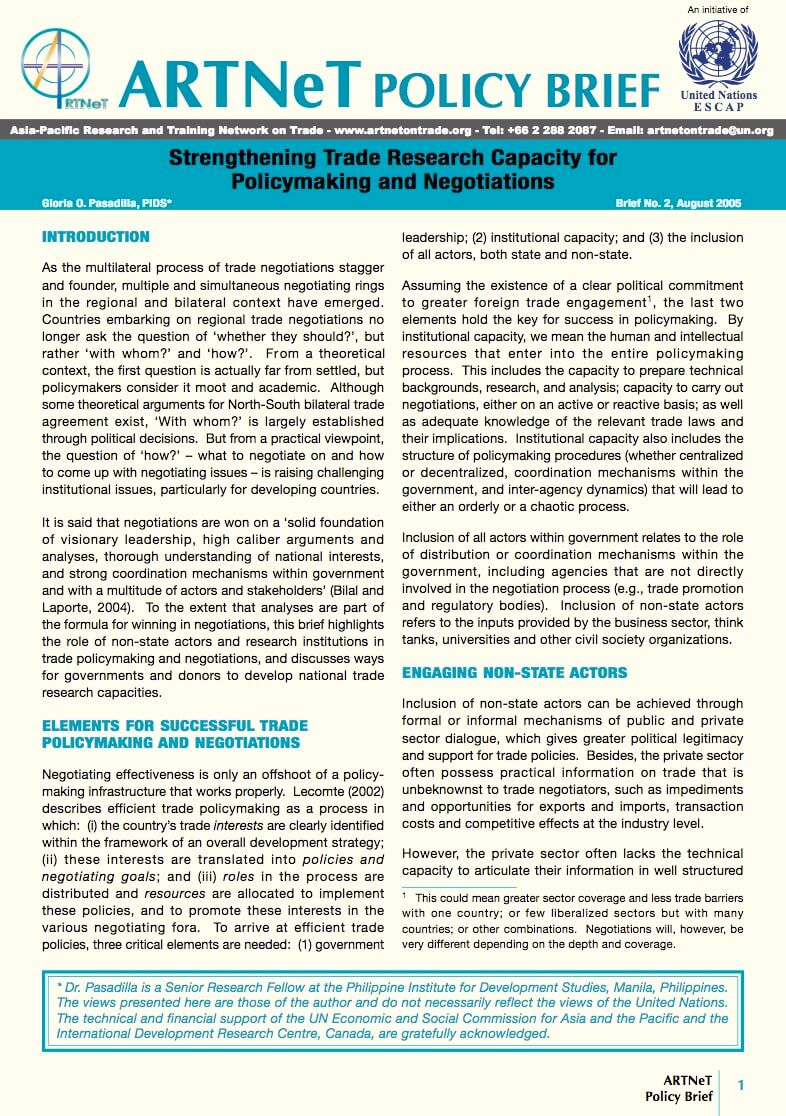Strengthening Trade Research Capacity for Policymaking and Negotiations

As the multilateral process of trade negotiations stagger and founder, multiple and simultaneous negotiating rings in the regional and bilateral context have emerged. Countries embarking on regional trade negotiations no longer ask the question of ‘whether they should?’, but rather ‘with whom?’ and ‘how?’. From a theoretical context, the first question is actually far from settled, but policymakers consider it moot and academic. Although some theoretical arguments for North-South bilateral trade agreement exist, ‘With whom?’ is largely established through political decisions. But from a practical viewpoint, the question of ‘how?’ – what to negotiate on and how to come up with negotiating issues – is raising challenging institutional issues, particularly for developing countries.
It is said that negotiations are won on a ‘solid foundation of visionary leadership, high caliber arguments and analyses, thorough understanding of national interests, and strong coordination mechanisms within government and with a multitude of actors and stakeholders’ (Bilal and Laporte, 2004). To the extent that analyses are part of the formula for winning in negotiations, this brief highlights the role of non-state actors and research institutions in trade policymaking and negotiations, and discusses ways for governments and donors to develop national trade research capacities.
